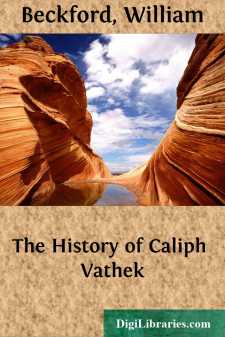Categories
- Antiques & Collectibles 13
- Architecture 36
- Art 48
- Bibles 22
- Biography & Autobiography 816
- Body, Mind & Spirit 145
- Business & Economics 28
- Children's Books 17
- Children's Fiction 14
- Computers 4
- Cooking 94
- Crafts & Hobbies 4
- Drama 346
- Education 58
- Family & Relationships 59
- Fiction 11834
- Foreign Language Study 3
- Games 19
- Gardening 17
- Health & Fitness 34
- History 1378
- House & Home 1
- Humor 147
- Juvenile Fiction 1873
- Juvenile Nonfiction 202
- Language Arts & Disciplines 89
- Law 16
- Literary Collections 686
- Literary Criticism 179
- Mathematics 13
- Medical 41
- Music 40
- Nature 179
- Non-Classifiable 1768
- Performing Arts 7
- Periodicals 1453
- Philosophy 66
- Photography 2
- Poetry 897
- Political Science 203
- Psychology 45
- Reference 154
- Religion 516
- Science 126
- Self-Help 85
- Social Science 82
- Sports & Recreation 34
- Study Aids 3
- Technology & Engineering 59
- Transportation 23
- Travel 463
- True Crime 29
Our website is made possible by displaying online advertisements to our visitors.
Please consider supporting us by disabling your ad blocker.
The History of Caliph Vathek
by: William Beckford
Categories:
Description:
Excerpt
INTRODUCTION
William Beckford, born in 1759, the year before the accession of King George the Third, was the son of an Alderman who became twice Lord Mayor of London. His family, originally of Gloucestershire, had thriven by the plantations in Jamaica; and his father, sent to school in England, and forming a school friendship at Westminster with Lord Mansfield, began the world in this country as a merchant, with inheritance of an enormous West India fortune. William Beckford the elder became Magistrate, Member of Parliament, Alderman. Four years before the birth of William Beckford the younger he became one of the Sheriffs of London, and three years after his son’s birth he was Lord Mayor. As Mayor he gave very sumptuous dinners that made epochs in the lives of feeding men. His son’s famous “History of the Caliph Vathek” looks as if it had been planned for an Alderman’s dream after a very heavy dinner at the Mansion House. There is devotion in it to the senses, emphasis on heavy dining. Vathek piqued himself on being the greatest eater alive; but when the Indian dined with him, though the tables were thirty times covered, there was still want of more food for the voracious guest. There is thirst: for at one part of the dream, when Vathek’s mother, his wives, and some eunuchs “assiduously employed themselves in filling bowls of rock crystal, and emulously presented them to him, it frequently happened that his avidity exceeded their zeal, insomuch that he would prostrate himself upon the ground to lap up the water, of which he could never have enough.” And the nightmare incidents of the Arabian tale all culminate in a most terrible heartburn. Could the conception of Vathek have first come to the son after a City dinner?
Though a magnificent host, the elder Beckford was no glutton. In the year of his first Mayoralty, 1763, Beckford, stood by the side of Alderman Wilkes, attacked for his No. 45 of The North Briton. As champion of the popular cause, when he had been again elected to the Mayoralty, Beckford, on the 23rd of May, 1770, went up to King George the Third at the head of the Aldermen and Livery with an address which the king snubbed with a short answer. Beckford asked leave to reply, and before His Majesty recovered breath from his astonishment, proceeded to reply in words that remain graven in gold upon his monument in Guildhall. Young Beckford, the author of “Vathek,” was then a boy not quite eleven years old, an only son; and he was left three years afterwards, by his father’s death, heir to an income of a hundred thousand a year, with a million of cash in hand.
During his minority young Beckford’s mother, who was a granddaughter of the sixth Earl of Abercorn, placed him under a private tutor. He was taught music by Mozart; and the Earl of Chatham, who had been his father’s friend, thought him so fanciful a boy—“all air and fire”—that he advised his mother to keep the Arabian Nights out of his way. Happily she could not, for Vathek adds the thousand and second to the thousand and one tales, with the difference that it joins to wild inventions in the spirit of the East touches of playful extravagance that could come only from an English humourist who sometimes laughed at his own tale, and did not mind turning its comic side to the reader. The younger William Beckford had been born at his father’s seat in Wiltshire, Fonthill Abbey; and at seventeen amused himself with a caricature “History of Extraordinary Painters,” encouraging the house-keeper of Fonthill to show the pictures to visitors as works of Og of Basan and other worthies in her usual edifying manner....


